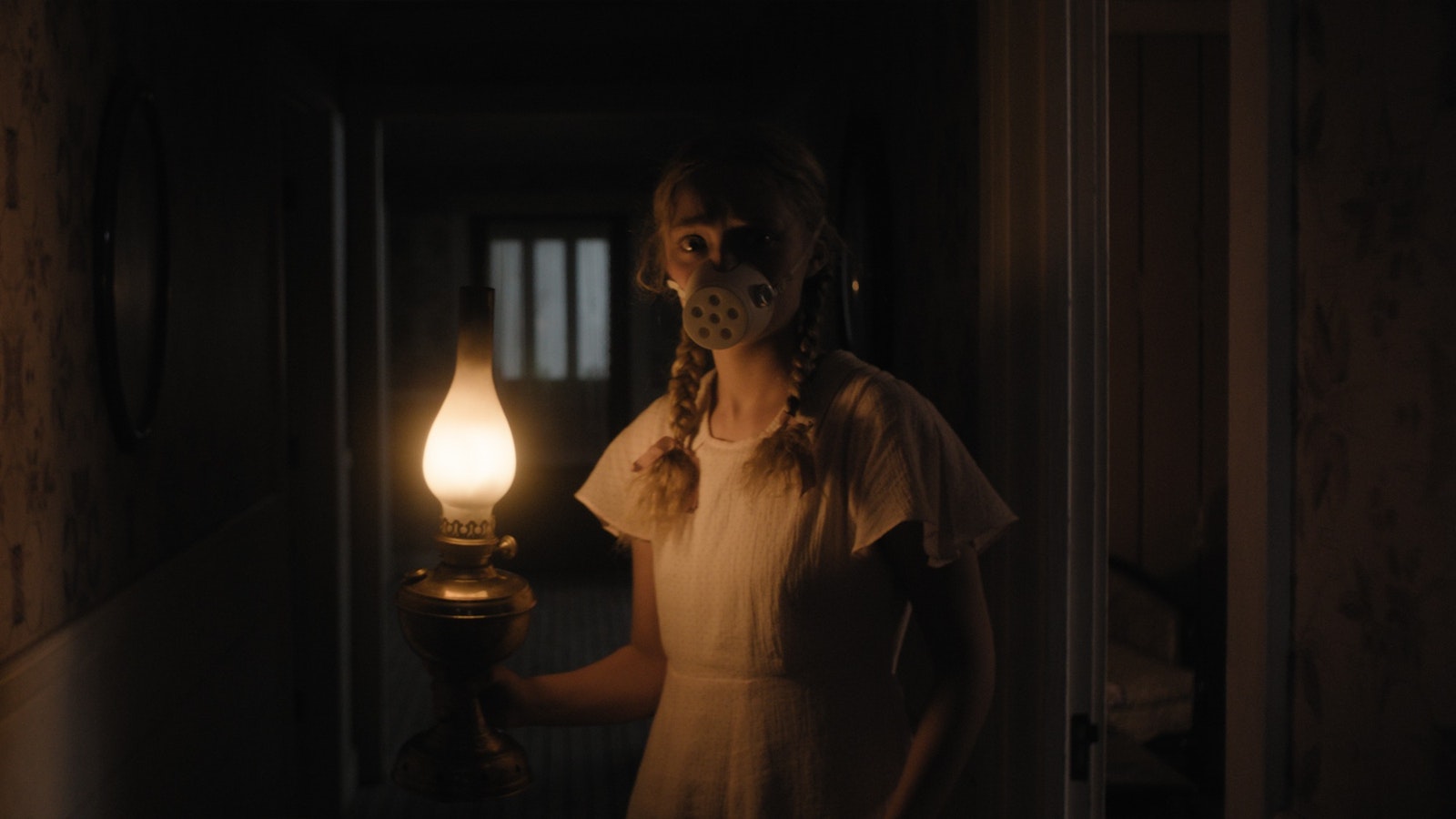Hold Your Breath
Dust gets everywhere in director Karrie Crouse and Will Joines’ hard-scrabble...

Dust gets everywhere in director Karrie Crouse and Will Joines’ hard-scrabble horror. It fills the skies, covers the furniture, and chokes the characters’ lungs. Often it clouds their judgement, too. Anyone sensing a metaphor swirling here won’t be disappointed. But those hoping for a satisfying pay-off may well be.

Based on a long-gestating script by Crouse, who also worked on TV’s similarly sand-blasted Westworld, Hold Your Breath can’t be faulted for its ambition. For their feature debut, Crouse and Joines create a convincingly brutal world that their (largely female) characters must endure.
Having worked so hard to convince us of the reality of the characters’ plight, falling back on the usual crazy-woman stereotypes isn’t just disappointing, it’s disastrous.
Sarah Paulson is typically committed as Margaret, a woman on the edge. Her husband is working away, she’s lost a child to scarlet fever, and there’s something almost pathological about her obsession with sweeping away the dust. “It’s a battle,” she admits, eyes shining with quiet mania.
It’s beautifully shot by Zoë White (Westworld, The Handmaid’s Tale), who captures the ever-changing caprices of the landscape, from shimmering sunsets to sudden, black-skied storms. There are also thematic echoes of the pandemic, as the characters don makeshift masks, seal up their houses and talk in hushed tones of disease. What there isn’t however is a clear throughline. Pitting Margaret and her family against nature offers a strong set-up, reminiscent of 2018’s The Wind, another feminist frontier horror about unruly weather. But the film then takes a different path — several different paths, in fact.
One involves the arrival of a mysterious preacher (The Bear’s gruff diamond Ebon Moss-Bachrach), who may be a con artist, a psychopath or the dreaded Gray Man the children read about in an on-the-nose bedtime story. So far, so The Night Of The Hunter. Another concerns Margaret’s increasingly questionable grip on reality — a familiar trope that starts to feel more and more forced as the film goes on. Having worked so hard to convince us of the reality of the characters’ plight, falling back on the usual crazy-woman stereotypes isn’t just disappointing, it’s disastrous.
While it’s reasonable for the characters living under these circumstances to lose the plot, the pity is that the filmmakers do too.
What's Your Reaction?






















